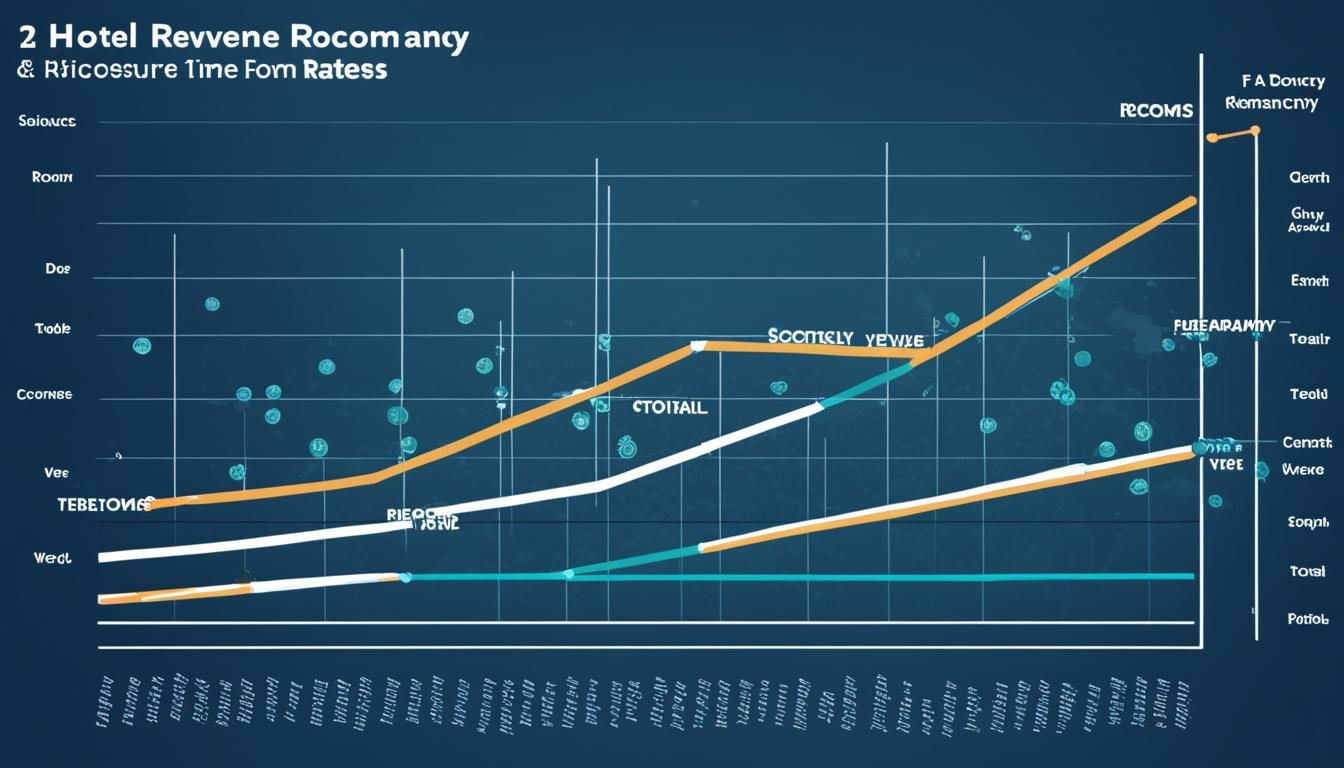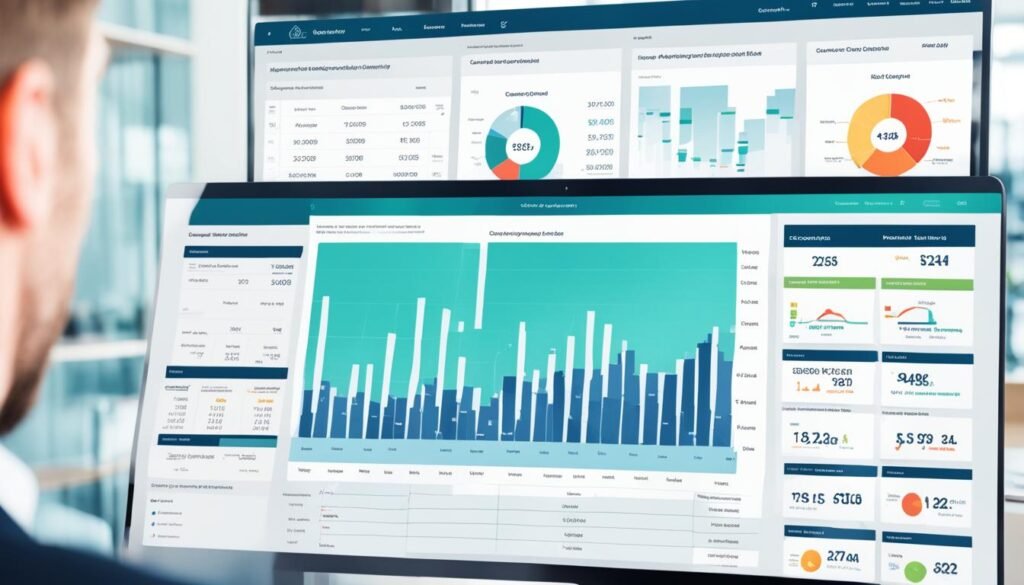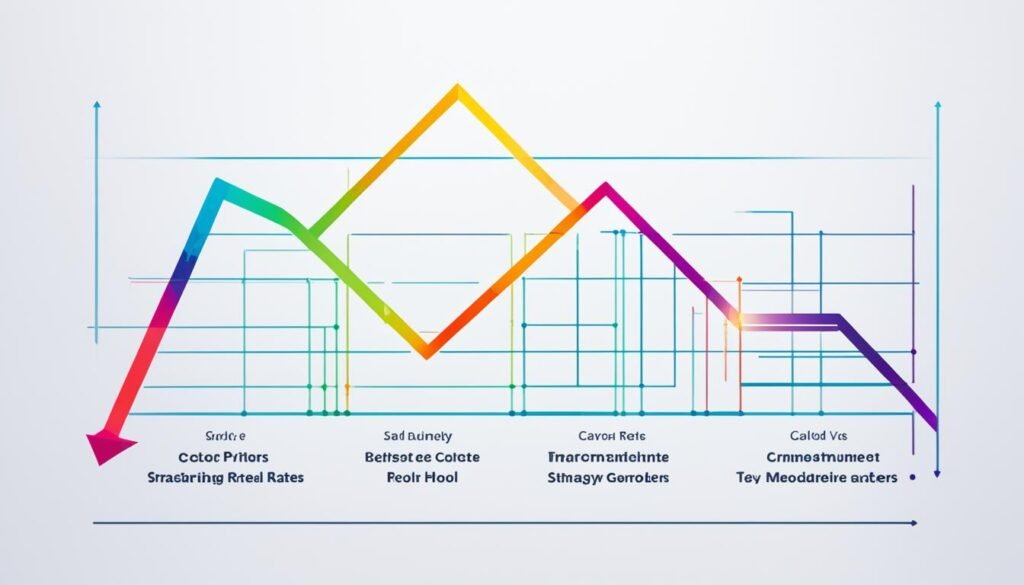HOME / SINGLE POST

Studies have found a surprising truth: making more money in hotels isn’t about just filling rooms. It’s about clever pricing and offering the right services. By using smart hotel revenue management, hotels can greatly increase their profits. This method includes setting prices carefully, analyzing hotel data, and using special software designed for hotels. In the hotel industry, where profits are hard to make, these strategies and insights are key to success.
Hoteliers once aimed to simply fill their rooms. But now, success in hospitality needs a detailed pricing approach. Whether it’s a beachside resort in California or a city hotel in New York, all hotels gain from solid revenue management training. This training gives teams the power to turn information into income.
The hospitality landscape today demands meticulous revenue management in hotels to stay competitively viable. Hotel revenue optimization, a complex yet vital puzzle, requires acute market sense and data-backed strategies. It combines analytics, pricing skills, and managing distribution channels to shape financial success for hotels of all sizes.
At its heart, revenue strategy for hotels needs a deep understanding of guest behavior, booking channels, and the economic scene. Factors like seasonality, events, and consumer feelings affect demand. These factors are key for revenue leaders to forecast demand, manage room inventory, and set prices to maximize profits.
Though it sounds complicated, these tasks are broken down into steps – analyzing, anticipating, acting, and assessing. These steps cover everything from reviewing past performance to setting competitive prices, aiming to boost hotel profits.
To show the detailed nature of hotel revenue optimization, here’s a table that outlines the main parts of a successful revenue strategy:
| Component | Objective | Benefit |
|---|---|---|
| Market Analysis | Understand the competitive landscape | Inform pricing and positioning |
| Inventory Management | Optimize room availability | Prevent overbooking and missed revenue opportunities |
| Pricing Strategy | Adjust prices according to demand | Maximize revenue during high and low demand periods |
| Channel Distribution | Broaden market reach | Increase booking potential across various platforms |
| Demand Forecasting | Predict future booking trends | Prepare for market fluctuations |
| Performance Analytics | Measure outcomes of revenue initiatives | Refine strategies for continuous improvement |
To wrap up, winning at revenue strategy for hotels requires more than just a set plan. It’s a dynamic process that focuses on detailed aspects and the ability to change with the market. By concentrating on the key areas mentioned, hotels can improve their bottom line. This ensures they stay profitable and resilient as the industry evolves.
Effective revenue management in hotels is key to success in the hospitality industry. Today’s market demands dynamic pricing and understanding consumer needs. A solid revenue strategy for hotels is crucial. We will look at important techniques for a strong revenue management system. These techniques keep up with market trends and improve financial results.
Analyzing market trends and demand is essential. It helps hotels stay competitive as the market changes. Leaders should examine economic indicators closely to shape their strategies. Looking at seasonal changes, local events, and how people spend money reveals when demand might rise or fall. This helps decide the best way to offer hotel rooms.
Adaptive pricing is central to a good revenue strategy for hotels. Using past data, hotels can predict busy times and adjust prices. This approach helps increase earnings when demand is high and stay competitive when it’s not. It also matches what consumers are willing to pay with current rates, ensuring full occupancy.
Using revenue management software for hospitality is critical in the digital world. These tools help manage prices, bookings, and how rooms are sold. They provide valuable data and automated tools for managers. This helps predict market trends better and create effective strategies.
Here’s a table showing some top revenue management software options for hospitality:
| Software | Key Features | User Benefits |
|---|---|---|
| IDeaS G3 RMS | Advanced analytics, Demand forecasting, Strategic pricing | Automated decisions support, Increased RevPAR, Simplified reporting |
| Rainmaker | Guest revue optimization, Lifecycle marketing, Personalized offers | Maximized guest lifetime value, Enhanced direct bookings, Market segmentation |
| RateTiger | Channel manager, Price Optimization, Competitor rate analysis | Better distribution control, Real-time market rates, Informed pricing decisions |

The revenue strategy for hotels needs constant polishing in today’s fast-paced world. At its heart lies revenue management training for hotels. This training is key for those aiming at long-term success. It helps the hotel staff master the art of using data, spotting trends, and employing the latest techniques for revenue growth.
Good training programs offer a mix of theory and real-world practice. They help learners get familiar with the industry’s current tools and ways. A strong revenue management training for hotels introduces staff to basic and complex strategies needed for revenue boosting.
An expert revenue management team is vital for effective hotel revenue strategies. Ongoing training helps them stay updated with the hotel world’s fast changes and new tech. Hotels committed to regular revenue management training stand out. They have skilled teams ready to increase revenue successfully.
In summary, leading hotels invest in developing their revenue management staff. It’s not a one-time activity but a continuous growth path. This effort aims to deepen their understanding of revenue complexities. It prepares them to craft and apply plans that boost profits.
In today’s tough hotel market, a smart hotel pricing strategy is key to making money. It’s not just about the right price. It’s about knowing the market, what customers want, and using the best pricing tools to beat competitors.
Using competitive pricing analysis techniques gives hotels an edge. It involves looking closely at what rivals charge to find ways to stand out. Successful hotels use advanced data tools to watch rivals’ prices closely. This lets them change their prices quickly to attract guests who are looking for good deals, without hurting profits.
To set the best prices, hotels compare their room types, amenities, and extra services. This helps them see what guests think their stay is worth. Then, they can price rooms in a way that fills them up and keeps earnings high.
Dynamic pricing changes with market demand. Hotels use up-to-the-minute data to tweak prices. This helps fill rooms last minute, make the most of busy times, and bring in guests when it’s slow.
Similarly, seasonal pricing changes rates with the seasons. Rates might go up during holidays or special events and down when it’s quiet. This works well for places with clear busy and slow seasons. But, it needs good market study and planning to avoid charging too much or too little.
Combining dynamic and seasonal pricing helps hotels earn more in busy times and stay competitive when it’s slow. This method needs a strong system to look at a lot of data and find useful trends.
These pricing strategies, when done well, mean every room sold adds a lot to the hotel’s earnings. By keeping their pricing methods up to date and flexible, hotel owners can face competition successfully. They can seize chances to make more money in every situation.

In the end, a hotel’s ability to make and use a pricing plan that draws in its ideal guests is crucial to its success. Through smart competitive pricing, adjusting to demand, and seasonal changes, hotels can keep making money in a constantly changing market.
In the evolving hospitality world, hotel revenue analytics are key to a solid revenue strategy for hotels. Hoteliers need to look beyond basic analysis. They should use advanced analytics to find trends, create strategies, and boost profits.
Hotel revenue analytics process and examine lots of data from various sources. It uses predictive analytics to guess future market behaviors. This gives hotels strong decision-making foundations. Revenue managers can then adjust their strategies for better pricing and availability, matching market and consumer needs.
Advanced analytics tools help hotel professionals stay proactive instead of reactive, turning data into a strategic asset that drives every aspect of their revenue strategy for hotels.
What does hotel revenue analytics cover?
Revenue strategies for hotels also include ancillary services, not just rooms. Hotels can offer more by understanding guest preferences and spending. This boosts upselling, cross-selling, guest value, and loyalty.
| Revenue Analytic Component | Description | Impact on Revenue Strategy |
|---|---|---|
| Market Trend Analysis | Identifying patterns in consumer booking and travel behaviors. | Allows dynamic adjustment of pricing and marketing tactics. |
| Historical Data Review | Examining past performance to understand demand cycles. | Informs future room rate structures and occupancy forecasts. |
| Rate Parity Evaluation | Ensuring consistent pricing across all booking platforms. | Helps maintain brand integrity and prevents revenue leakage. |
| Customer Insight Mining | Gathering data on guest preferences and satisfaction levels. | Facilitates personalized services and promotional offers to drive direct bookings. |
Using hotel revenue analytics isn’t just about filling rooms or getting higher rates. It’s also about making the whole hotel operation more profitable. With refined analytics, hoteliers can excel in the competitive hospitality industry.
In the evolving world of hospitality, revenue management in hotels has become key for financial success. It’s evident from this article that a detailed revenue strategy for hotels is critical. Without it, thriving in a competitive market is tough.
We’ve seen how crucial hotel revenue optimization is in making smart decisions about pricing, distribution, and demand forecasting. It’s not just about setting prices correctly. It’s about knowing the market, using technology well, and training teams for success in revenue tasks.
“The art of revenue management enables hotels to anticipate consumer demand, align pricing strategies, and ultimately drive business growth.”
Hotels need to quickly adjust to market changes to boost their revenue potential. They can use dynamic pricing, predictive analytics, or new revenue management systems. These steps help hotels increase their market share and profits.
| Strategy | Objective | Benefit |
|---|---|---|
| Market Trend Analysis | Understand demand patterns | Informed pricing decisions |
| Competitive Pricing | Stay ahead of competitors | Enhanced market position |
| Revenue Management Software Utilization | Streamline revenue-related tasks | Increased operational efficiency |
| Dynamic & Seasonal Pricing | Maximize revenues during peak demand | Optimized revenue throughout the year |
| Staff Training Programs | Equip teams with latest revenue management techniques | Empowered staff leading to better performance |
Finally, revenue management in hotels is about more than just short-term profits. It’s about building a system that lasts and makes money over the long term. Every part of the revenue strategy for hotels is vital for increasing revenue, urging hoteliers to keep refining their strategies for lasting success.
In the hotel revenue management field, people always look for new ways to make more money. There are many strategies and tools out there. So, it’s normal for industry experts to have questions about what works best. We aim to clear up some common questions about revenue management strategies and hotel pricing strategies.
Understanding hotel pricing strategies is key to improving profits. With so many hotels competing, it’s crucial to set the right prices. This means knowing the market well and being ready for demand changes. Hotels use advanced software to set prices based on up-to-the-minute data. This helps meet customer expectations and reach business goals.
Revenue management strategies can seem complex. But they’re essential for filling up rooms and getting the best room rates. These strategies use data, forecasts, and economic rules to change prices and room availability. This needs to be done often, to keep up with the market’s ups and downs. Staying on top of these changes helps hotels stay successful.
Never miss any important news. Subscribe to our newsletter.